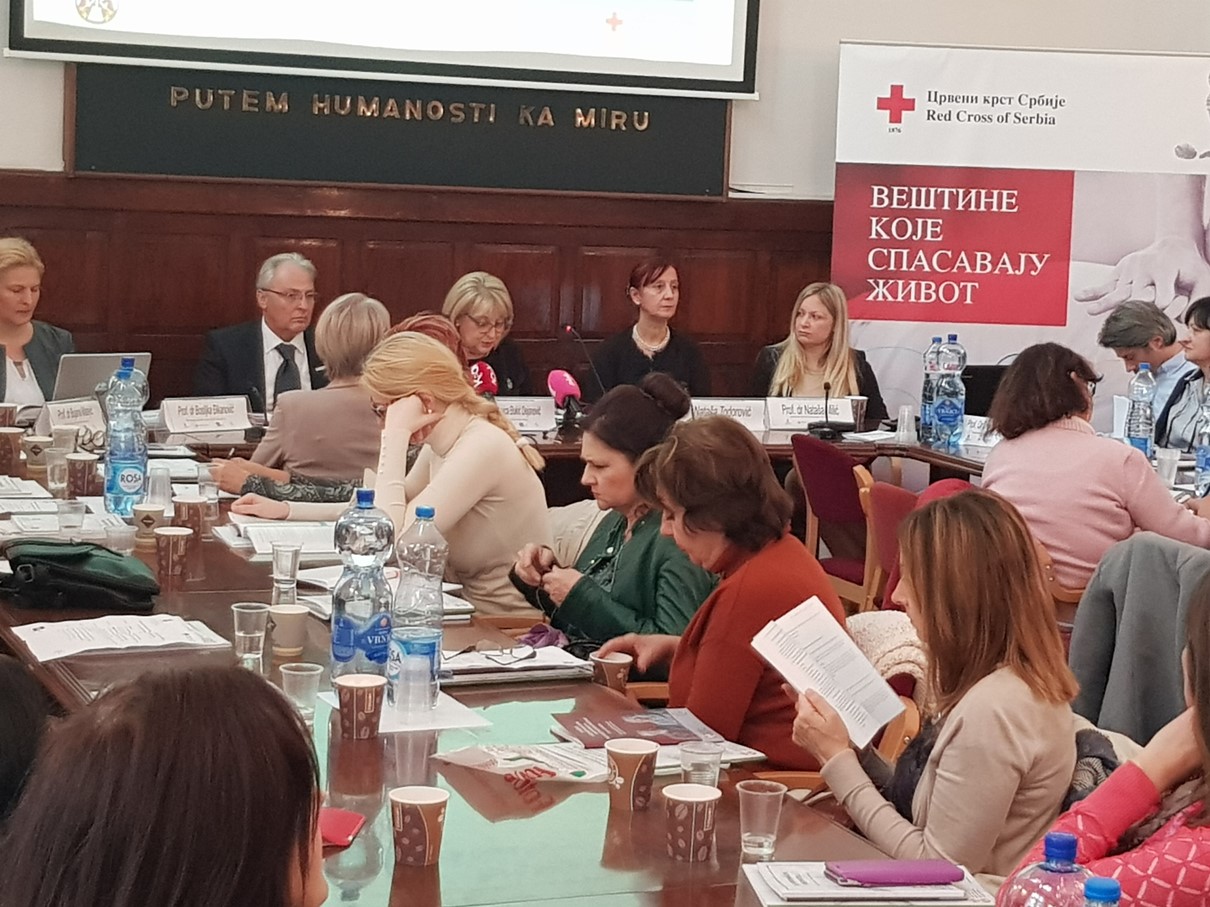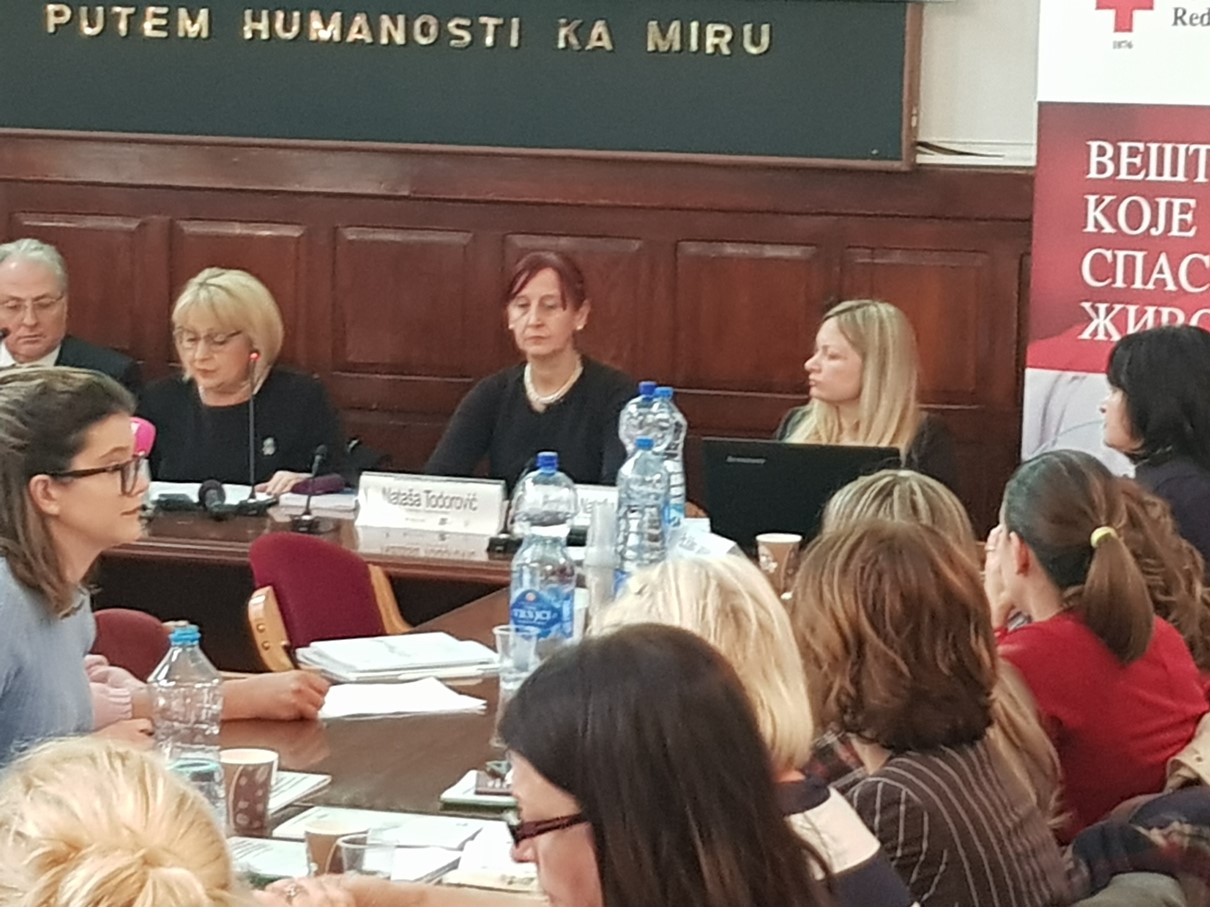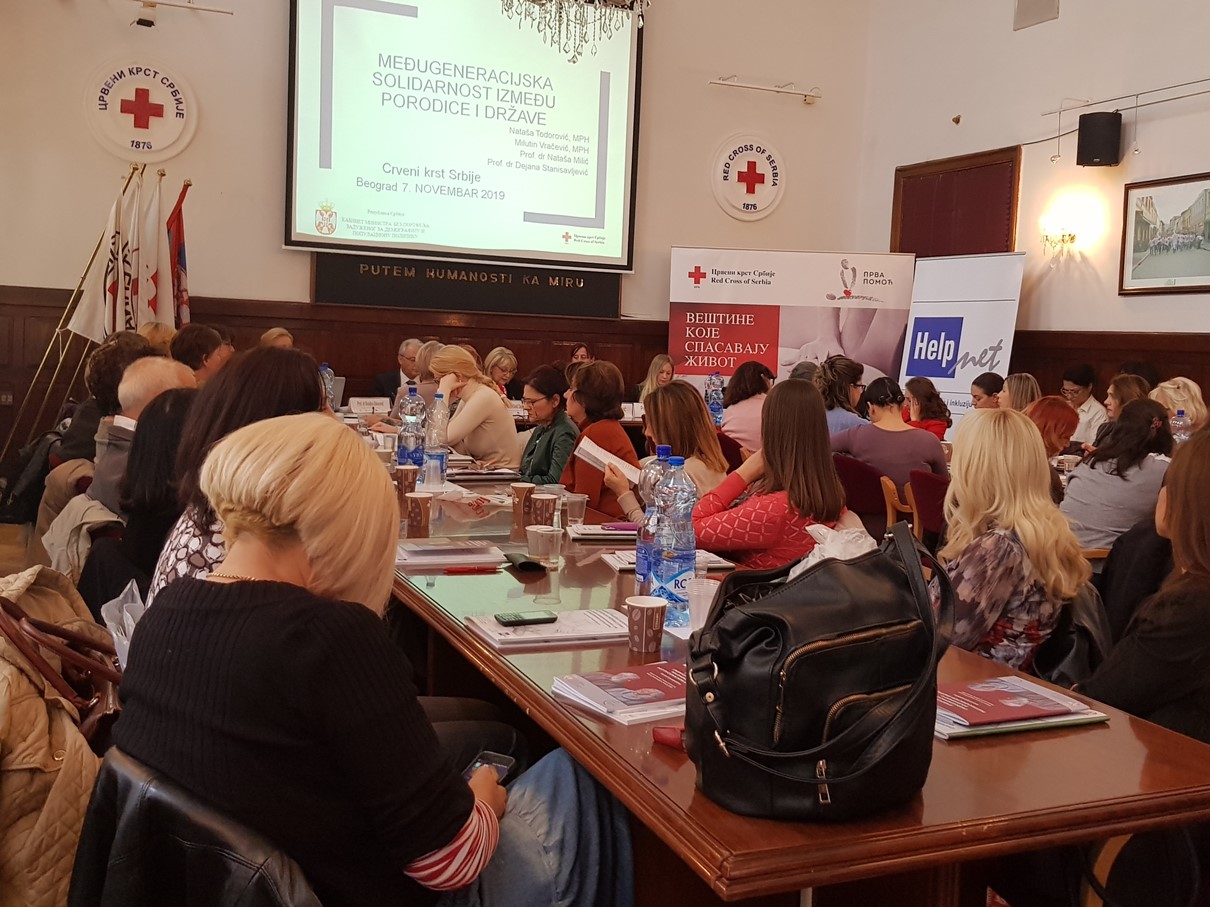Conference „INTERGENERATIONAL SOLIDARITY BETWEEN THE FAMILY AND THE STATE”
On Thursday, 7 November 2019 at the Red Cross of Serbia premises, a Conference “Intergenerational solidarity between the family and the state” was organised to present results of three research studies implemented in 2019. All three studies were done by the Red Cross of Serbia in partnership with academic institutions and partner civil society organisations. The Conference itself was organised as part of the project implanted by the Red Cross of Serbia and civil society organisations Help Net and Centre for Responsible Action, with support provided by the Cabinet of the Minister without portfolio responsible for demographics and population policy, prof. Dr Slavica Djukic Dejanovic.
The goal of the three research studies was to explore relationships and ties between generations in different contexts as well as to explore needs and problems of informal caregivers. The results of the three research studies should serve as pointers on developing future public policies and designing services that will be adapted to the needs of families and their members of all generations. No less importantly, the results should serve to promote equal opportunities for all generations and their participation in the society.
The Conference was opened by prof. Dr Dragan Radovanovic, the President of the Red Cross of Serbia, speaking about the positive experiences in working with the Medical Faculty of the Belgrade University and the mission of the Red Cross of Serbia in promoting solidarity.
The Minister without portfolio responsible for demographics and population policy, prof. Dr Slavica Djukic Dejanovic spoke about the trend of demographic ageing and the changing structure of families that together make intergenerational solidarity in all societies, communities and families even more important. She underlined that the family structure has changed but that its function has not changed or diminished and that research is key to understand the right balance of roles between the family and the state, informal caregivers and formal services, as well as services in the community and the institutional services, so as to develop a response to demographic ageing through future public policies.
The first research study, “Intergenerational solidarity between the family and the state” was presented by prof. Dr Dejana Stanisavljevic of the Medical Faculty of the Belgrade University, and Natasa Todorovic of the Red Cross of Serbia. The research activities took place in June and July 2019 in 15 Serbian municipalities, through anonymous face-to-face interviews. 1,423 persons of different generations took part.
The majority of the participants (82%) spoke of close emotional bonds and (79%) good quality of communication with their children, the researchers observed intense intergenerational exchange in which every generation provides but also receives. For example, providing emotional support is nearly identical in both directions (66.9% of adult children provides it to their parents and 64.4% receives it from them), while 46.5% helps their parents in house chores and 37.5% is helped by their parents. It should be underlined that when it comes to financial support, significantly more adult children receive it from their parents (46.7%) than they provide it to their parents (36.2%) which debunks the prejudiced opinion about older persons being an economic burden to their families and the society.
The research study “Ageing and intergenerational solidarity in residential setting”was presented by prof. Dr Natasa Milic of the Medical Faculty of the Belgrade University and Dr Milutin Vracevic of the Red Cross of Serbia. This research involved 373 participants – 309 from the public retirement homes and 64 from private-run ones. It showed that a large majority of beneficiaries decided on living in the retirement home due to being unable to live on their own (49.7%), after their health condition abruptly changed for the worse (17.3%) and not wishing to be a burden to their children (21.2%). Regarding the indicators of the quality of life of beneficiaries, it is important to observe the correlation between the perceived quality of life and social relationships with family and friends.
The third research study, “Improving the position of informal caregivers in the Republic of Serbia” was presented by prof. Dr Bojana Matejic and prof. Dr Bosiljka Djikanovic, both of the Medical Faculty of the Belgrade University. This study sought to detect the needs and problems that informal caregivers in Serbia face. 352 persons of both sexes self-identified as informal caregivers participated in the research and their services are most frequently provided to their closest relatives: 38.6% provides care to their parents, 15.6% to their spouses and 13.4% to their children. A number of informal caregivers stressed that they have no other assistance in providing care to their loved ones (14%) while others listed the support of their children (43.2%), spouses (36.4%) and other family members and friends.
At the last session of the Conference, Natasa Todorovic and Dr Milutin Vracevic of the Red Cross of Serbia presented the guide for informal caregivers “I, informal caregiver”, a manual with succinct advice for informal caregivers on how to provide high-quality care as well as on how to take care of themselves and their own health.
A speaker at the Conference quoted Rosalynn Carter, former First Lady of the United States speaking about informal care: “There are only four kinds of people in the world - those who have been caregivers, those who are caregivers, those who will be caregivers and those who will need caregivers.”




